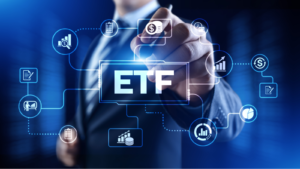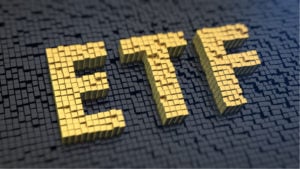
Retirement ETFs are crucial for anyone looking to put aside money decades into the future. Not everyone has the free time to scour through hundreds of individual stocks. ETFs give you lots of diversification and have hand-picked stocks from smart institutions that should continue compounding safely for decades. You also don’t have to go through the hassle of keeping up with each business you invest in.
Plus, many companies that offer 401(k) plans don’t have the option for you to pick individual stocks. I think having a list of retirement ETFs is very important.
Here are three retirement ETFs every investor should own. Before I dive in, you should know that the sizing here entirely depends on you. For the average Joe, I’d recommend putting the most money in the first pick.
Vanguard Total Stock Market Index Fund (VTI)

The Vanguard Total Stock Market Index Fund (NYSEARCA:VTI) is an exchange-traded fund (ETF) that tracks the performance of the CRSP US Total Market Index (INDEXNASDAQ:CRSPTM1). This index represents 100% of the U.S. investable equity market and is a very solid long-term holding. Diversifying into everything may sound like overdoing it and being a laggard, but this ETF has actually been a better buy than the SPDR S&P 500 ETF Trust (NYSEARCA:SPY).
First, VTI has an expense ratio of just 0.03%. On the other hand, the SPY comes with a 0.09% expense ratio. A big plus is that you also get a 1.34% dividend yield here, compared to 1.26% on the SPY. VTI’s base returns have been slightly lower in the past five years, but when you consider these extras, they can have a big impact on a portfolio that you’ll be compounding for many decades.
Holdings breakdown:
Vanguard Information Technology Index Fund ETF (VGT)

The Vanguard Information Technology Index Fund ETF (NYSEARCA:VGT) tracks the MSCI US Investable Market Information Technology 25/50 Index. It is a tech-focused play that has been stable and consistent. Over the long run, it has outperformed the Invesco QQQ (NASDAQ:QQQ).
StockAnalysis states, “In the past year, QQQ returned a total of 31.46%, which is slightly higher than VGT’s 31.15% return. Over the past 10 years, QQQ has had annualized average returns of 18.42%, compared to 20.48% for VGT.” It also has a higher dividend yield. QQQ has a dividend yield of 0.57%, compared to the VGT’s 0.66% dividend yield. It also has half the expense ratio at 0.10% vs 0.20% for the QQQ.
I believe tech stocks will continue to drive most of the growth for the coming decades, especially with AI having a spillover effect on many industries. As such, having plenty of tech exposure is a smart idea.
Holdings breakdown:
JPMorgan Equity Premium Income ETF (JEPI)

This is a more income-focused ETF. It is a good pick if you have a lot of money and are close to retirement already. The total returns here are unlikely to match the other two ETFs on this list in the long run, but you’re getting a lot of ballast and a solid dividend yield at these levels.
The JPMorgan Equity Premium Income ETF (NYSEARCA:JEPI) is an actively managed fund that aims to generate income by selling options on U.S. large-cap stocks. The fund invests in S&P 500 stocks that exhibit low-volatility and value characteristics, selling options on those stocks to generate additional income.
The ETF aims to offer a hedge-fund strategy combined with lower volatility than the U.S. stock market. The upside and the downside are capped here to some extent due to how it operates. It has a 7.36% dividend yield and pays monthly. The expense ratio is a bit expensive at 0.35%, but JEPI is a solid income pick at these levels with plenty of upside.
Holdings breakdown:
On the date of publication, Omor Ibne Ehsan did not hold (either directly or indirectly) any positions in the securities mentioned in this article. The opinions expressed in this article are those of the writer, subject to the InvestorPlace.com Publishing Guidelines.






